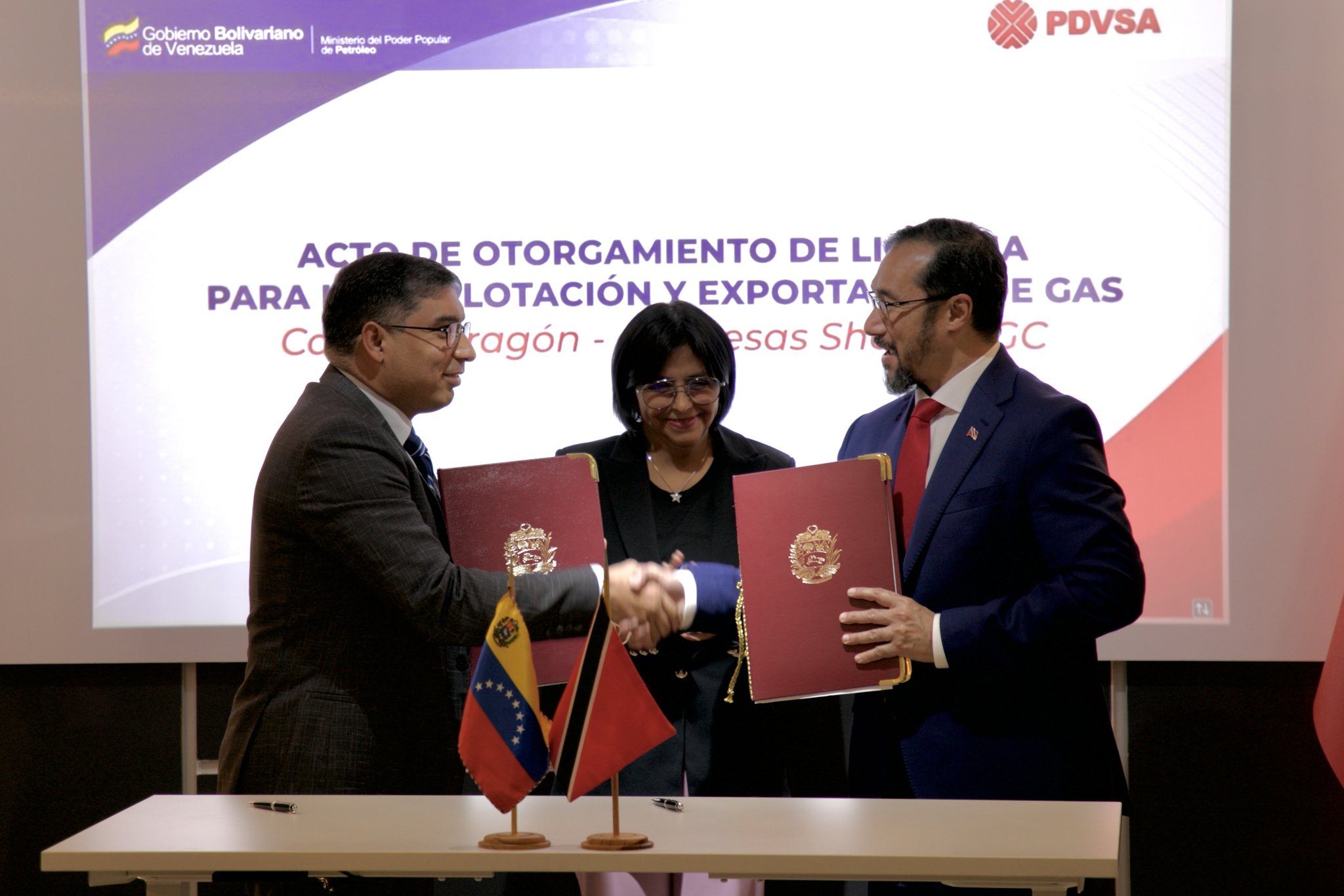5th January 2024
Trinidad and Tobago has officially been granted a license for the exploration, production, and export of natural gas from the Dragon Gas Field in Venezuela.
Making the announcement about the deal, which was signed in late December 2023, Trinidadian Prime Minister Keith Rowley said that it marks a historic development in the partnership between the two nations, allowing Trinidad and Tobago to access and process Venezuela’s vast natural gas reserves.
“To have entered into this agreement in 2023, to open this door to allow us with the infrastructure on the ground in Trinidad, to access and process the raw material from below the ground in Venezuela, puts the two nations in a position to play a bigger and beneficial role in the world’s economy and for the benefit of the people of Venezuela and Trinidad and Tobago,” said Rowley.
In a statement, the Government of Venezuela announced that its state oil company PDVSA has issued a 30-year license to the Trinidad and Tobago’s state-owned National Gas Company (NGC) to develop the gas field with Royal Dutch Shell as the operator.
“The Dragon Field is set to become one of the most important gas production hubs in the region… With this license, we are consolidating the operational settings for its definitive development, harnessing its full potential for the benefit of our country and the world,” said Venezuelan Oil Minister Pedro Tellechea.
The agreement comes after protracted negotiations which stalled on multiple occasions because of US sanctions on Venezuela.
In January 2023, a two-year Office of Foreign Assets Control (OFAC) waiver was secured by Port of Spain from the US Treasury Department for exploitation of the Dragon oil field with the proviso that Venezuela received no cash payments.
Later in October 2023, some US sanctions were lifted against Venezuela after President Nicholas Maduro signed an electoral deal with the country’s main opposition party.
This led to an amendment to the Treasury waiver which now allows Trinidad and Venezuela to agree their own payment terms.
Trinidad’s Energy Minister Stuart Young noted that the full commercial terms agreed is the culmination of seven years of negotiations which began in 2016 with a government-to-government agreement, followed by a commercial term sheet which was set out in 2018.
In recent months, the Rowley Administration has faced criticism over the apparent inability to close a deal on Dragon following little implementation of these agreements.
“We must recall there was another deal signed in 2018 when Dr Rowley went to Caracas and since then there has not been much movement on the Dragon gas deal which is arguably the centre piece of this Governments energy policy,” said Former Energy Minister Kevin Ramnarine.
“In terms of a next move, it would be useful to know what is the role of the NGC, the role of Shell and PDVSA and who will pay for the development which will run into hundreds of millions of US dollars or more. What will be the exposure of the NGC?” questioned Ramnarine.
The government has moved to clarify some of these concerns following the issuance of the license and the latest agreement on commercial terms.
“We were able to move PDVSA out of the formula which is even better for us now. And the producers will be Shell and NGC,” said Energy Minister Young, announcing some of the changes contained in the new agreement.
“We managed to negotiate that NGC will be in the full value chain and that we’re going to be an equity player in the production and the exportation of this gas to Trinidad and Tobago, at a very competitive price that will benefit both the people of Venezuela and us here in Trinidad and Tobago,” added Young.
During the first phase of the project, it is anticipated that some 185mn cubic feet of natural gas will be generated daily which will be transported through the construction of a 17-kilometre pipeline connecting Venezuela’s Dragon field to Shell’s Hibiscus field in Trinidadian waters, where liquefied natural gas (LNG) and petrochemicals will be produced.
Reuters reported that first output from Dragon could be achieved in two years if positive investment decisions are made in the coming months.
In the earlier stages of negotiations, Venezuela had advocated for a second pipeline linking the Dragon field to Venezuela’s coast to address domestic demand. Although specific details about the gas line were not mentioned in the recent statement, subsequent project phases might encompass this aspect.
The Dragon Gas field is estimated to house approximately 4.2tn cubic feet of deposits. It was discovered by PDVSA over 10 years ago, but infrastructural development came to a halt shortly thereafter when US sanctions began to affect Venezuela’s oil and gas sector.
The deal has largely been welcomed by analysts and the general population as Trinidad and Tobago moves to increase its slowing oil and gas production on which the economy so heavily depends.
This is a lead article from Caribbean Insight, The Caribbean Council’s flagship fortnightly publication. From The Bahamas to French Guiana, each edition consists of country-by-country analysis of the leading news stories of consequence, distilling business and political developments across the Caribbean into a single must-read publication. Please follow the links on the right-hand side of this page to subscribe, or access a free trial.
Photo: Venezuelaanalysis.com





